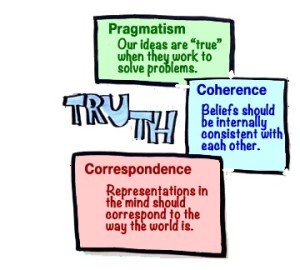
Because pragmatism is idealistic
We posed yesterday about pragmatism as politics and its consequences, now we want to analyze its origins and demonstrate its fidelity to idealism and therefore modernity.
to analyze its origins and demonstrate its fidelity to idealism and therefore modernity.
One of the exponents of pragmatism was John Dewey, who lived almost a century and died in 1952, exerting enormous influence to this day, his doctoral thesis was about Kant’s “psychology”, and this would suffice to prove his idealism and not practicality.
His university career has a boost when in 1884 he teaches Philosophy at the University of Michigan, and three years later he publishes his “philosophical system” in Psychology.
This philosophical system that combined the scientific study of psychology with classical German philosophy, deeply influenced by idealism, but it was William James who popularized the pragmatist conception and developed it after a great influence of the French philosophy of the time articulating it with the thought of Stuart Mill, is therefore utilitarian, although Dewey preferred the term “instrumentalist.”
At the base, Dewey never denied this, strongly influenced neo-Hegelian, but also, as in the case of the other two founding fathers being a Pierce, of empiricist and utilitarian influence.
We separate here Charles Sanders Peirce because this re-meant the term, after a re-reading of the practical anthropology of Immanuel Kant, what Dewey called psychology, after all it is known that semiotics is much more a philosophy of language than of psychology , Although they may be related but not direct.
Pragmatism gained momentum in the 1970s with thinkers such as Richard Rorty, Richard Bernstein, and Hans Jonas, influencing Putnam and Habermas as well.









